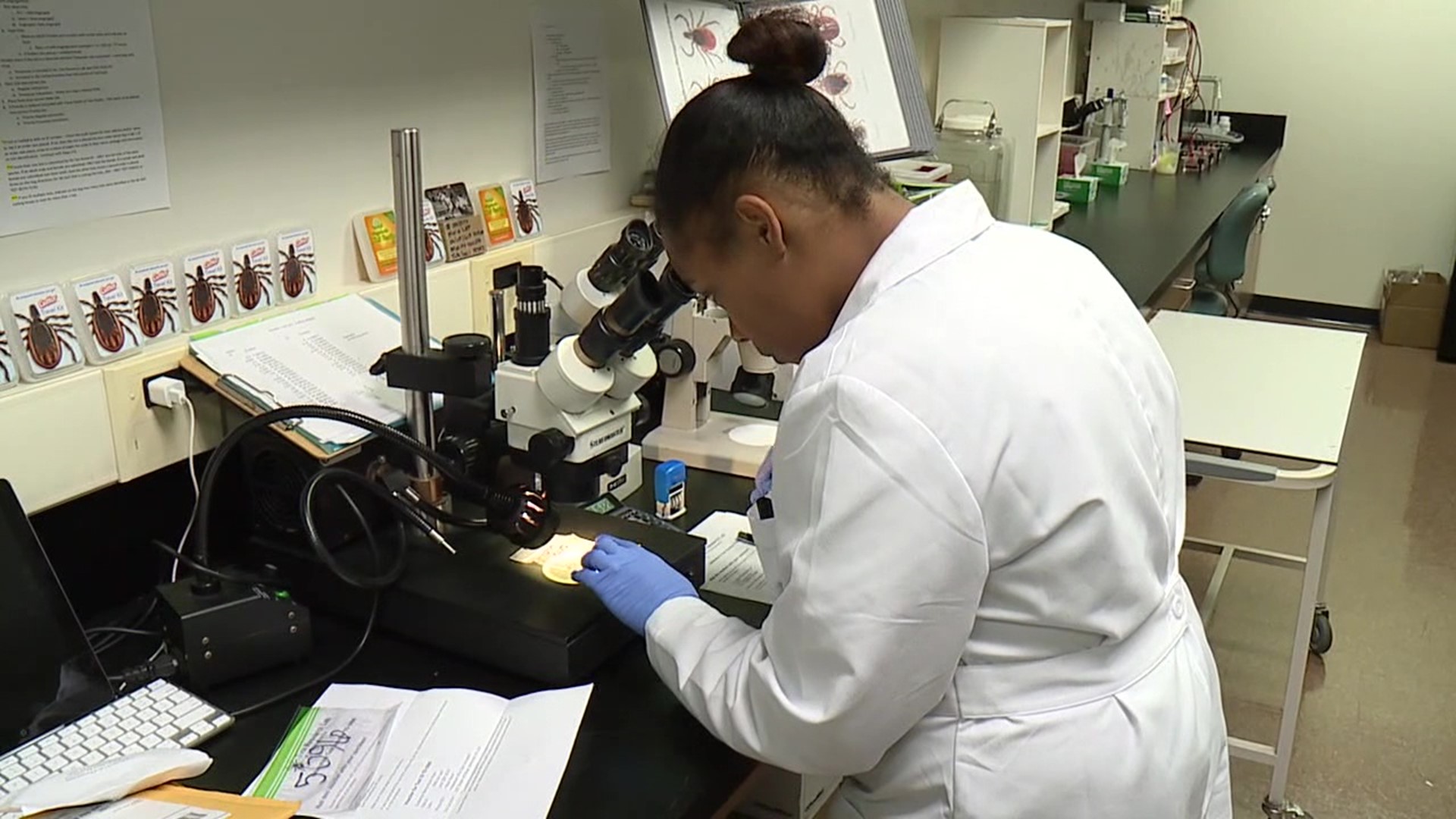MONROE COUNTY, Pa. — It's that time of year when lab workers at the East Stroudsburg University Tick Research Center are hard at work testing ticks for disease.
"In the tick population, we see ranges. So, for the nymphs, we can see upwards of about 40 percent that will be infected with Lyme disease, and then the adults are greater. Up to 60 percent can be carriers of the pathogen that causes Lyme disease," said Nicole Chinnici, the lab director of the East Stroudsburg University Tick Research Lab.
Chinnici runs the lab in Smithfield Township. The lab is taking part in the first tick mitigation study. The idea is to keep ticks from spreading Lyme disease to animals and, eventually, to people. East Stroudsburg University and Allegheny College are partnering on the $1 million research project.
"We have six total counties, one of which is Monroe. Pike County is another one," Chinnici said. "We're going to be going out trapping small mammals, mainly mice, that we'll be targeting, sampling them, and then releasing them back into the population, trying to track them through time to see if all anti-tick vaccine will reduce the infection rate in their population."
Through the baiting device, the anti-tick vaccine will be distributed to the small mammals. The vaccine is very similar to what you would give to your pet.
"They'll go up into the bait stations. They'll consume some of the bait, and that will give them that medication. The stations work as a vaccine boost. So every two weeks, they'll re-consume more bait, and over time what it's going to do is it cements the saliva of the tick so that the ticks fall off, and it will reduce the ticks from being able to transition to their next life cycle," Chinnici said.
Chinnici hopes to start the study over the next two weeks. If they continue to receive the funding, the study will last about five years.
Check out WNEP’s YouTube channel.

